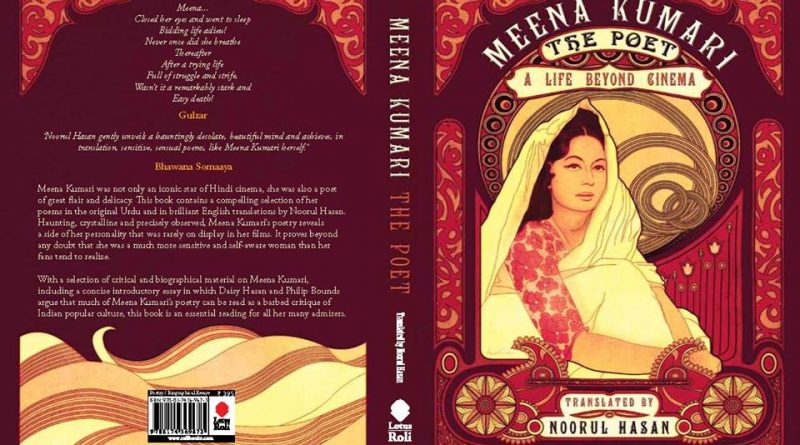UTTAR PRADESH / Shillong, MEGHALAYA :
I remember Professor Noorul Hasan when he returned after a prestigious fellowship in Manchester University, to teach us in M.A. at the North Eastern Hill University. He was teaching us Thomas Hardy’s ”Jude The Obscure” and by then we knew that he was a Hardy specialist. Prior to taking up the text he gave us an overview of 19th century English fiction, where the point and counterpoint were realism and reality. I sat enchanted, for never had I heard such concepts discussed. Moreover, our understanding of texts prior to this was only piecemeal. Professor Hasan was always viewing texts in specific literary and cultural contexts. This was something I never heard before, but our Professor had an unique style. He would explain a novelist or for that matter a poet in a cultural context. What do you think Father Time represents ? he would ask us.
Days later he took up a John Donne poem. Trying to specify metaphysical wit he said with a flourish : ” It is as if he says Q.E.D. after the poem”! Professor Hasan would use the text as a tool to highlight a writer’s virtues. Ratiocinating as I learnt slowly was an hallmark of the great Metaphysical poets. And then when seminar papers were discussed he would snap: ”What does this word mean? You are writing a paper not fiction”. Again, ”Don’t use a word, the meaning of which you are not sure”. Here was a man inching us towards perfection, or some kind at least.
I wrote an essay on Metaphysical poetry. His comments were: ”Although the essay makes some useful points about individual poems, it fails to put into perspective Metaphysical poetry in its historical and cultural matrix”. Wow, I was learning.
After my Masters I had decided that if it was going to be a Phd, it would only be under the supervision of the one and only Professor Hasan. He was kind. What do you want to work on? he asked. The poets of the 1930s was a prompt but forethought answer. He dismissed it flippantly — ” so much work on this”. ”Why not William Golding?”
And William Golding it was. ”Tradition And Modernism In The Novels Of William Golding” was the subject, peremptorily decided by the teacher. ”You see,” he explained, ”not much has been written on him, you will not have to read much. And what you say should stand”. My mind went back to school. Oh ”Lord Of The Flies”. Poor Piggy, poor Ralph. Was Simon a saint, if so then why did he die so tragically?
”Keep on writing” was Professor Hasan’s maxim, “and then I will read. But remember your first chapter will be the most crucial. It will be theoretical around which the entire thesis will revolve. Around hundred pages”. The words seemed to fade away. Hundred pages of theory. I had no idea of it. I almost gasped. The Professor was looking into oblivion.
Meeting him in his department room with the ostensible reason of discussing my work, turned out to be more than exciting. ”Do you know I was taught by Firaq Gorakhpuri. When he spoke on Wordsworth it was as if Wordsworth was peeling off the creative layers of his poetry.” Allahabad University in the sixties he averred, had some of the best teachers of English Literature, Firaq, his brother, the Bose brothers and so on. I was transported to a new world of literature and culture. ”You see those days it was an euphoria in the aftermath of the freedom movement. We debated, discussed, had talks and in the midst of it all was Firaq, two whisky bottles dangling in his sherwani”.
”The problem with teachers,” he said, “is that they do not go into the creative processes of a text, they cannot build a context out of a text”.
I learnt from Professor Hasan, the nuances of teaching and learning, the critical use of language, and the ability to question, with the context emerging from a text. ”Your chapter on ‘Darkness Visible’ you should send to ”Modern Fiction Studies”. I almost fell down from my chair. My writing in Modern Fiction Studies, arguably, one of the best journals of fiction studies in the world?! I never did. But Professor Hasan never minced words. He meant what he said. He was not vulnerable to blandishment of any kind. He knew what was quality academic writing and what was not. ”You have improved considerably Ananya” he said. I winced. ”In MA you were not good. I used to wonder, this boy speaks so well, but writes badly”. Professor Hasan could be blunt! Above all he loved humanity, in tolerance even of those who harmed him the most. RIP beloved Sir.

(A brilliant Hardy scholar Prof Hasan worked under the supervision of C.B. Cox at Manchester. Professor Hasan was also a brilliant teacher, thinker and translator. He also translated the poems of Firaq Gorakhpuri and Meena Kumari into English. Translations which were received very well.)
source: http://www.thethumbprintmag.com / The Thumb Print / Home> Columns> Culture & Society> Featured> Lifestyle / by Ananya S. Guha / August 21st, 2017









